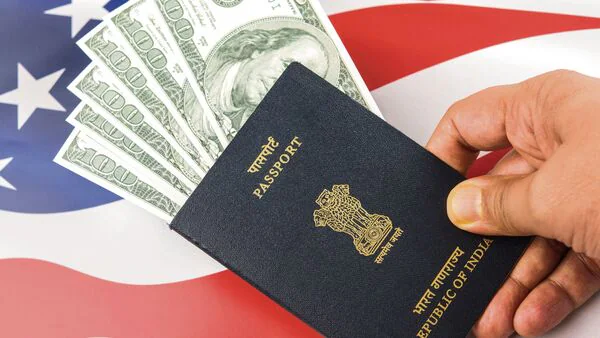Indians woke up on Saturday morning to yet another executive order by United States President Donald Trump that changes the rules of the H-1B visa programme, affecting Indians on the visa in the US, outside, and students.
With one stroke, the administration has imposed a $100,000 (Approx INR 85 lakh) fee on H-1B visa petitions, except in cases “where the hiring is in national interest and does not pose a threat to security”.
This order applies to new visa petitions starting September 21, 2025, and for anyone on a visa outside the US.
Rationale Behind the Order
According to the US President, the rationale is “to curb abuses of the H-1B system,” alleging that foreign workers are being used to replace, rather than supplement, American workers, often at lower wages.
In reality, this is another blow for Indians, who make up over 70% of all H-1B visa holders.
Who Is Affected?
For H-1B Holders:
- Applies on entry: If you are outside the US on an H-1B visa, re-entry from September 21, 2025, will only be allowed if your employer makes the mandatory $100,000 payment.
- Inside the US: Current H-1B holders can:
- Continue their jobs
- File for extensions
- Switch employers without triggering the fee
- But the moment they step outside and attempt to return, the rule applies.
- Tech giants have reportedly urged their H-1B staff abroad to return within 24 hours.
For Students:
- This order is one among a slew of decrees announced by Trump that could effectively make their American dream unattainable.
- The burden is on the employer, but companies will weigh the cost:
- Senior talent → May justify the $100,000 fee.
- Junior hires/small businesses → May decide against it.
- This directly threatens the post-study work pathway, one of the biggest draws of pursuing higher education in the US.
Impact on Education Loans and Lenders
Beyond visas, this decree adds uncertainty in the minds of lenders.
- Education loans are often approved based on employability prospects in the US.
- If job opportunities shrink because companies hesitate to sponsor H-1B petitions under the new cost regime:
- Lenders face a repayment risk.
- This might affect meritorious students who can afford studies only through a loan.
Broader Implications
- The US administration claims the order ensures only “truly essential” foreign hires come in and Americans get jobs.
- But reality check: US innovation and technology have been built on immigrant talent.
- Companies hire abroad not out of preference, but due to a lack of the right talent at home.
Legal and Industry Response
- Immigration lawyers are already talking about challenging this in court, calling it restrictive for employers.
- They argue it could prevent companies from hiring the right talent.
- The H-1B system, though imperfect, has:
- Fueled decades of technological progress
- Been the backbone of America’s talent edge
This new order risks dulling that edge.
Outlook
- The US currently issues 85,000 H-1B visas annually through a lottery system.
- The new cost could effectively reduce the number and opportunities.
For Indian students and professionals, the US just became a more uncertain bet.
